
Gravel is an inexpensive paving material overall, but costs vary by type. Find out what average gravel prices will look like for your project.
Skip those seemingly endless bags of wood mulch and opt for one of these alternatives


Traditional mulch like bark and wood chips are familiar choices for gardeners, but there are other mulch alternatives you can use for your garden. Our list of 11 options for mulch will help you get your lawn in top shape. Before adding mulch, be sure to prepare your garden for maximum benefit.
When taking on this project, expect questions only a pro can answer. With our network of local pros, you'll get the job done and your questions answered—without the hassle and stress of doing it yourself.
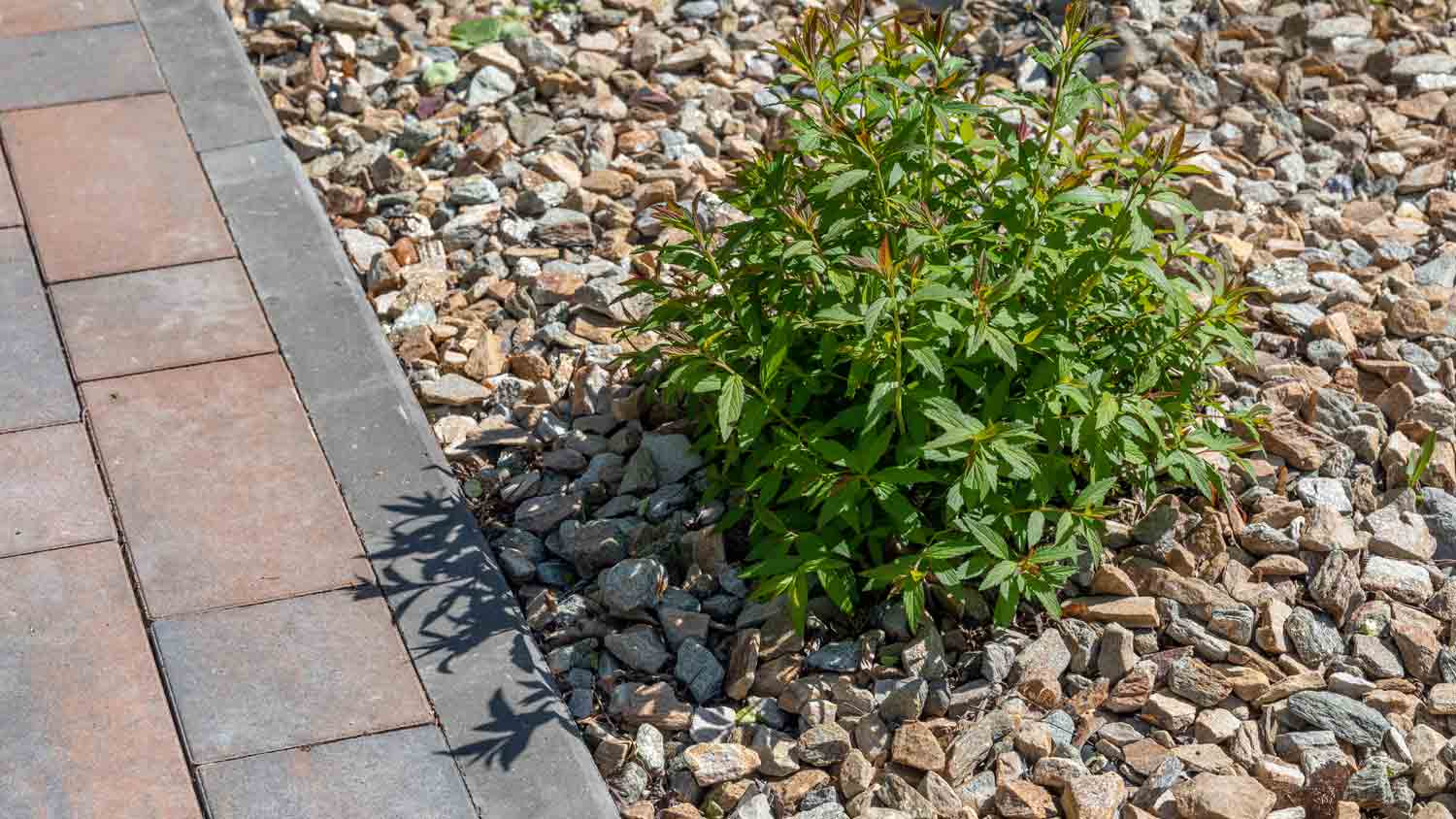
Stone mulch is an option for people who don’t want to reapply mulch every year because it lasts longer than wood chips or bark. Stones will also inhibit the growth of weeds in your garden and add a design element to your landscaping, with landscaping rocks costing around $50 to $800 per ton.
Your options with stone mulch include:
Large stones: More stable and less likely to move because of rain or other conditions, but take more work to install; ideal for hilly terrains
Small stones (including pea gravel): Easier to install than large stones but can be moved and dislodged by animals or weather
| Pros of Stone | Cons of Stone |
|---|---|
| Aesthetically pleasing | Takes time to install (large stones) |
| Suppresses weed growth | Moves easily due to weather and animals (small stones) |
| Long-lasting since it doesn’t decompose | Expensive option depending on number of stones |
| Low maintenance | Doesn’t add nutrients to the soil |
| Conserves soil moisture | Can absorb and radiate too much heat in hot climates |
| Absorbs, stores, and radiates heat | Dirt and debris can get stuck between stones |
| Easy to use (small stones) | |
| Stable against weather conditions (large stones) |
Best for: Plants that don’t need regular nutrients from the soil to thrive in moderate to cooler climates can benefit from stone alternatives to mulching.
Pumice stone is a beautiful and textural alternative to mulch. It also helps repel insects and pests. Unlike other rocks, pumice rock allows water and air to pass through, which helps prevent mold and fungus. Also, the pale colors of pumice rock add a nice contrast to the greens and other bright colors of your plants and flowers.
| Pros of Pumice Stone | Cons of Pumice Stone |
|---|---|
| Lightweight | Can degrade over time |
| Allows air to pass through to the soil | Provides no nutrients to the soil |
| Durable against the elements | High initial price compared to the cost of mulch |
| Aesthetically pleasing | Appearance might not be your cup of tea |
| Suppresses weed growth | |
| Long-lasting | |
| Good insulator against heat | |
| Repels insects and pests |
Best for: Pumice stones are best for soil that needs consistent moisture levels, proper drainage, airflow, and nutrients.
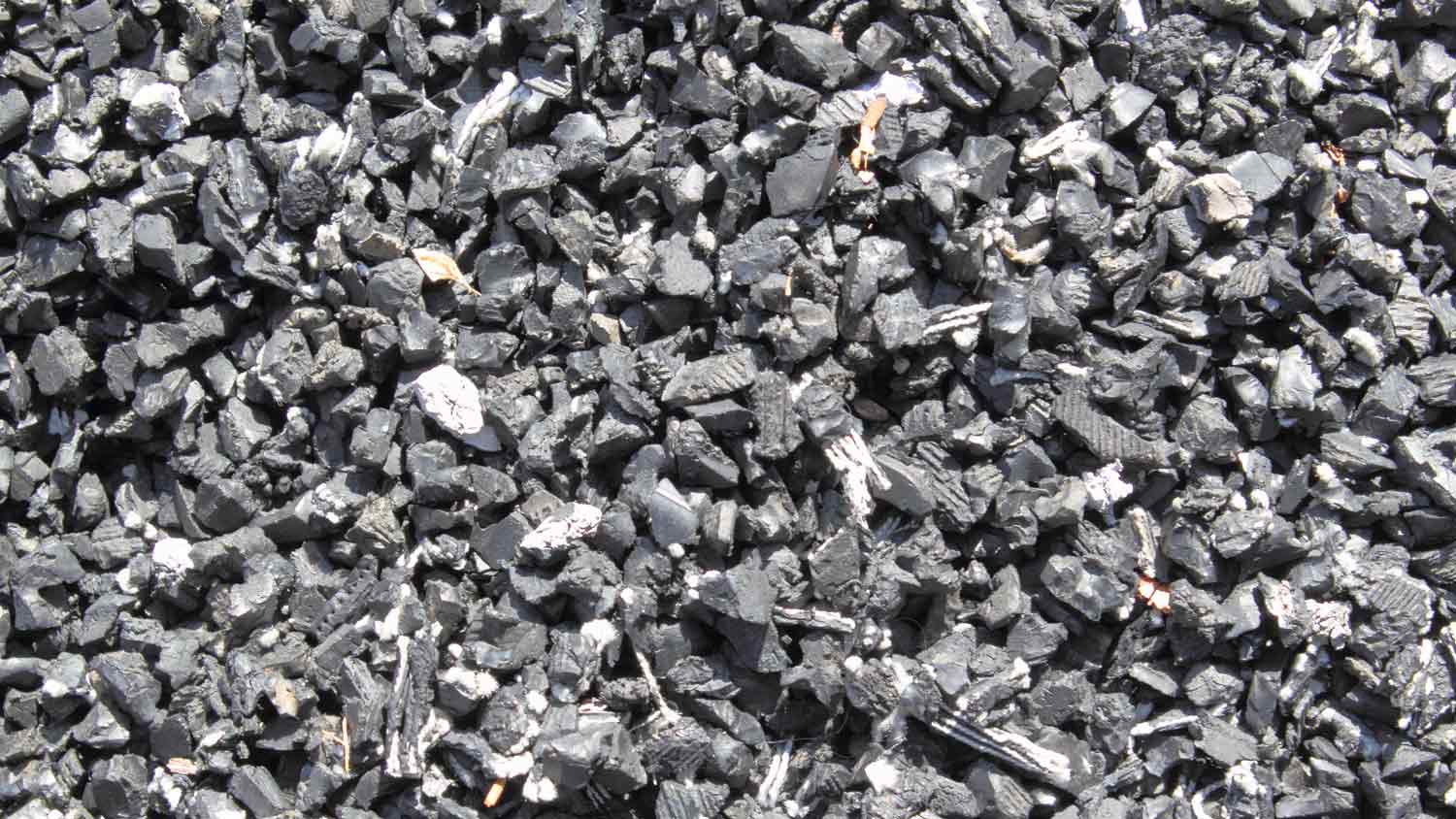
Rubber mulch is usually a more expensive option, starting at $7 per bag, compared to wood mulch, which goes for as little as $2 per bag. Rubber mulch is an excellent choice for people who want to reduce their carbon footprint because it’s made from recycled tires. Even in high winds and storms, it stays in place because of its weight, so it doesn’t need replacing as other mulch alternatives do.
| Pros of Rubber Mulch | Cons of Rubber Mulch |
|---|---|
| Long-lasting | Expensive option |
| Doesn’t absorb water, which can prevent waterlogging | Heavy metals like aluminum, cadmium, and zinc can contaminate the soil when the rubber starts breaking down |
| Durable against wind and heavy rain | Can release VOC, causing health problems |
| Suppresses weed growth | Doesn’t provide nutrients to the soil |
| Good insulator | Attract Asian cockroaches |
| Doesn’t attract most pests | Vulnerable to brown rot and white rot fungus |
| Made from recycled material | Can harm plants |
| Low maintenance |
Best for: Rubber mulch provides insulation for your plants, is low maintenance, and made from recycled material.
Shredded newspaper that only has black ink is an inexpensive and eco-friendly choice for an alternative mulch. If you choose to use newspaper, make sure you don’t include any inserts or ads when you shred it, as those pages have chemicals such as lead in the ink. Shredded newspaper may not be the most attractive option, but if you like the idea of using something recyclable, you can put a layer of another type of mulch over the top of the shredded paper to make it look nicer.
| Pros of Shredded Newspaper | Cons of Shredded Newspaper |
|---|---|
| Made from biodegradable material | Only use newspapers with black ink to avoid chemicals leaching into the soil |
| Budget-friendly | Not the most attractive; requires another mulch to give your landscape a nicer look |
| Good weed barrier | Easily blown away in the wind; may need to be weighed down |
| Conserves moisture | Decomposes in six weeks |
| Provides insulation against extreme weather conditions | Doesn’t give the soil any nutrients |
| Easy installation | Not recommended to use for edible plants |
Best for: Shredded newspaper might be right for you if you’re looking for an inexpensive and recyclable mulch alternative for plants you don’t intend to eat.
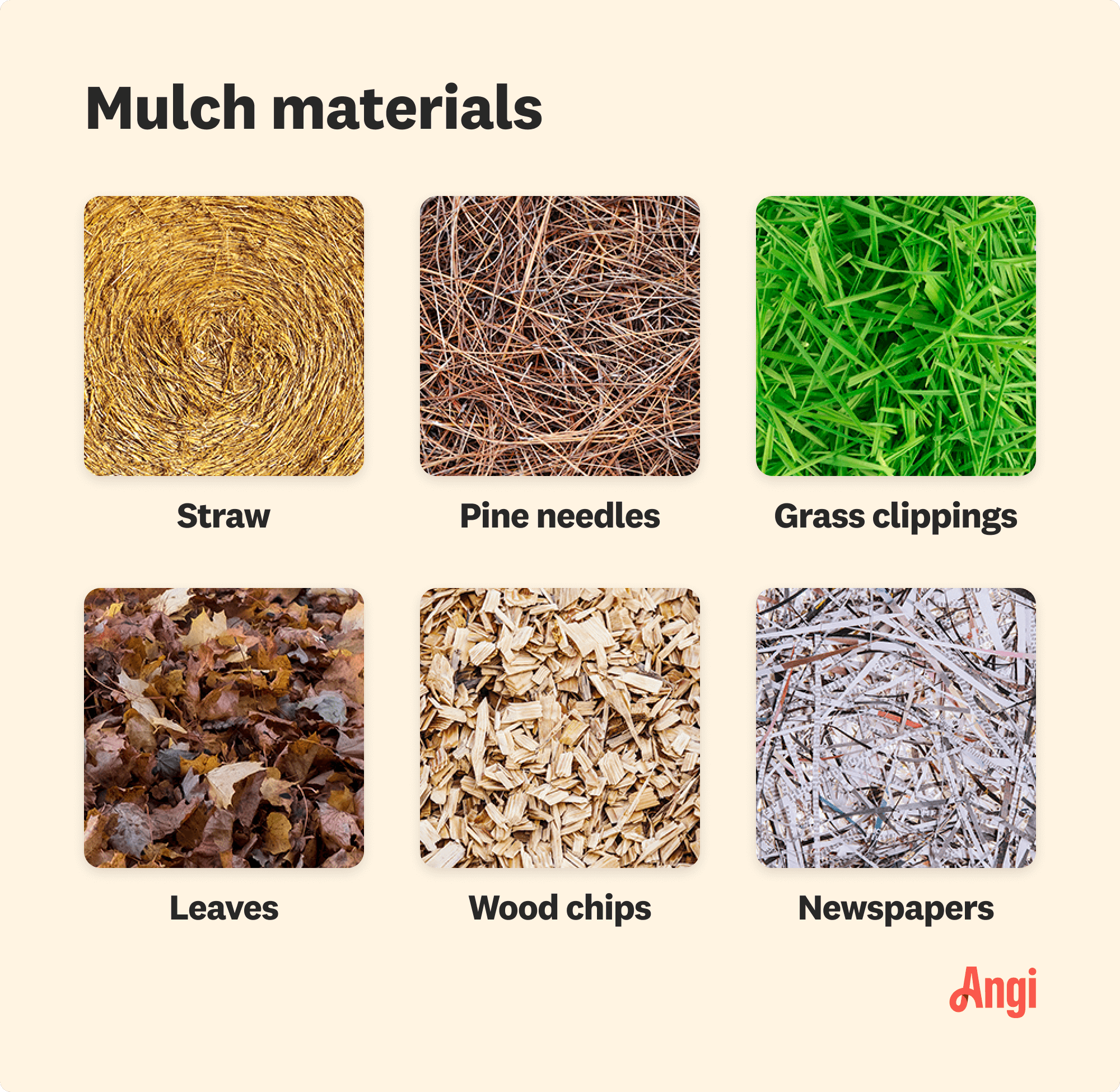

Leaves make excellent mulch (it’s even better if you have trees, which makes it free), but you must look for any blight or ailment that could harm the soil and plants. Use a leaf shredder so the leaves have the right texture and size to allow plants to grow. Whole leaves will keep moisture from penetrating the ground. If you don’t have a leaf blower, a lawn mower will do.
| Pros of Leaf Mulch | Cons of Leaf Mulch |
|---|---|
| Budget-friendly or free if you own trees | May leach chemicals into the soil if the leaves were sprayed with pesticides |
| Organic mulch | May need to be replaced more than once a year |
| Lightweight | Whole leaves can prevent air and water from reaching the soil |
| Easy to use | Leaves that aren’t thick enough can allow weeds to grow |
| Provides the soil with nutrients when it decomposes | Not the best choice for front yard landscaping |
| Heat insulator | Not durable against strong winds |
| Thick layers of leaves can inhibit weed growth | |
| Allows air and water to flow through to the soil |
Best for: Leaves are a great alternative when you’re looking for a wallet-friendly organic mulch material that’s easy to use and can help you get rid of all of your leaves while benefiting your soil.
You can keep weeds at bay and use less water by choosing a low-growing ground cover as a mulch alternative. Living plants will add nutrients to your soil to help your other plants grow and thrive. Ground cover mulch may need to be maintained and trimmed to prevent it from creeping into other areas of your yard. A local landscaper can help you determine which plants would be best for your garden.
Low-growth plants that work well as ground cover include:
Clover
Creeping thyme
Chamomile
Alyssum
Creeping Jenny
Lamium
| Pros of Ground Cover | Cons of Ground Cover |
|---|---|
| Suppresses weeds | Competes with main plants for water and nutrients |
| Retains moisture | Can attract unwanted animals and bugs |
| Organic material | Can hinder the main plant’s growth |
| Prevents soil erosion | Can take over an area if the growth isn’t controlled |
| Long-lasting | |
| Improves soil quality | |
| Attracts beneficial insects |
Best for: Green mulch might be your go-to if you want to improve your soil quality and if it and your main crops can live in harmony.
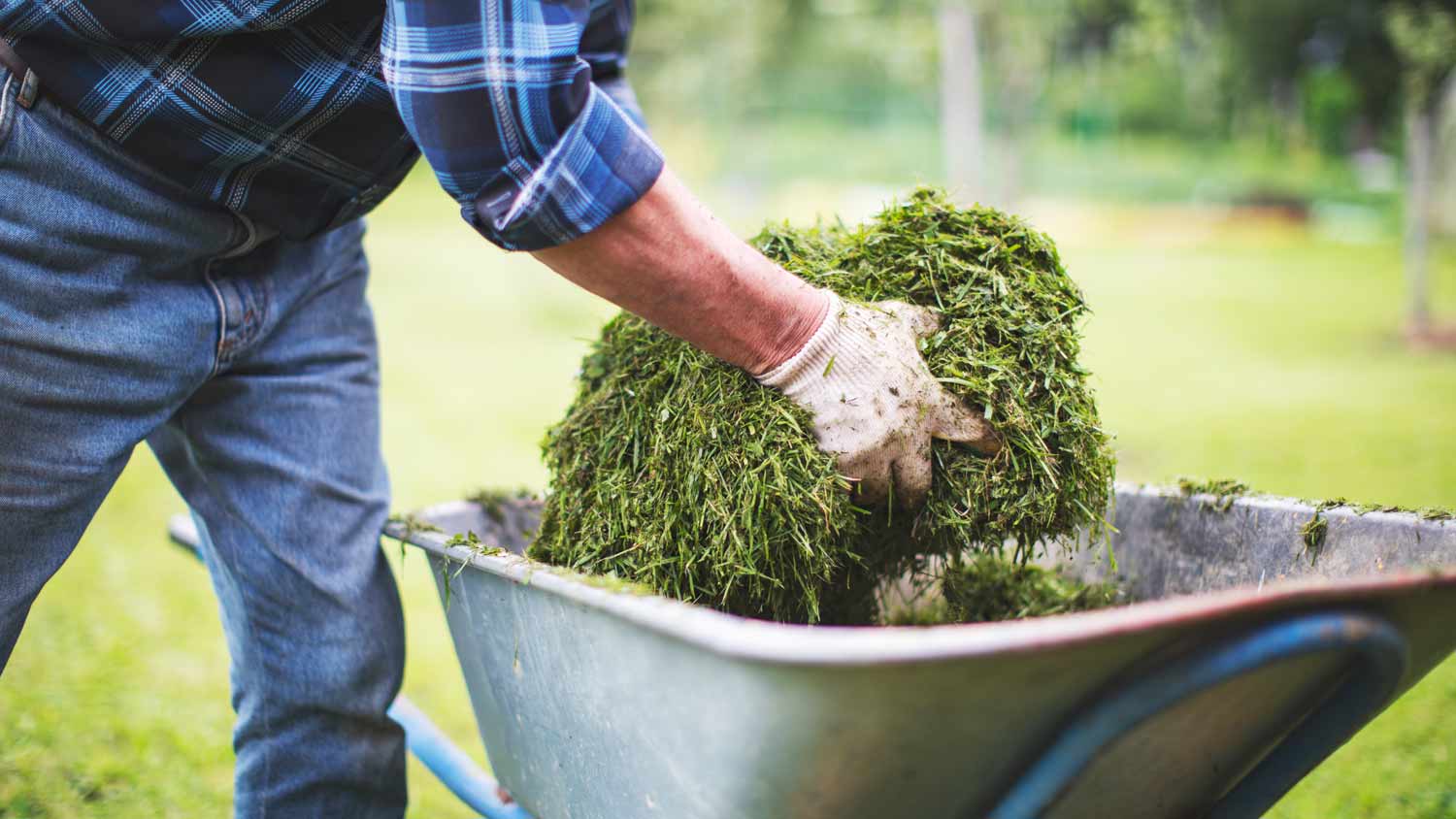
Grass clippings from mowing your lawn make a great DIY mulch for your garden. Not to mention, it’s free if you have a yard with grass. Place the green clippings closest to the soil to allow for nitrogen absorption, and put brown grass on top. Grass clippings are also very economical and environmentally friendly. But one caveat: Do not use grass clippings treated with fertilizer or pesticides because the chemicals can damage your plants or interfere with their growth.
| Pros of Grass Clippings | Cons of Grass Clippings |
|---|---|
| Organic mulch | Will need to replace it at least once a year |
| Budget-friendly | Can potentially harm your plant’s growth |
| Great heat insulator | Not attractive for landscaping |
| Releases nitrogen, which helps your plants grow | Becomes matted if applied too thick, preventing water and air from reaching the soil |
| Hinders weed growth | Generates heat when it decomposes |
| Provides nutrients to the soil when it decomposes |
Best for: Grass clippings are best for homeowners who have tons of it, want to save on costs, and want to give added nutrients like nitrogen to their soil.
For a farm-friendly feeling to your garden, nothing beats straw. A convenient and moisture-friendly natural product, straw is a good choice for an alternative to mulch. Straw is perfect for vegetable gardens since it can help keep your vegetables and fruits off the ground (no more mushy strawberries?).
One caveat: The biggest drawback with straw is that little critters love to eat it. If you live in a place with lots of rabbits, rodents, or other small animals, straw may not be the best choice for you.
| Pros of Straw | Cons of Straw |
|---|---|
| Retains moisture in the soil | Decomposes within weeks, so you’ll need to reapply it more than once a year |
| Thick layers can suppress weed growth | Harm plants if sprayed with pesticides or herbicides |
| Gives nutrients to the soil | Creates the perfect environment for weeds to grow when it starts to decompose |
| Inexpensive | May not fit your landscape’s style |
| Organic mulch | May have weed seeds, which can make your weed problem worse |
| Keeps your veggies and fruits off the ground | Attract unwanted critters that eat straw |
Best for: Vegetable gardens in wet climates or large areas can benefit from using straw as a mulch alternative, though you may need to contact your local mulch delivery company to see how much you’ll need.
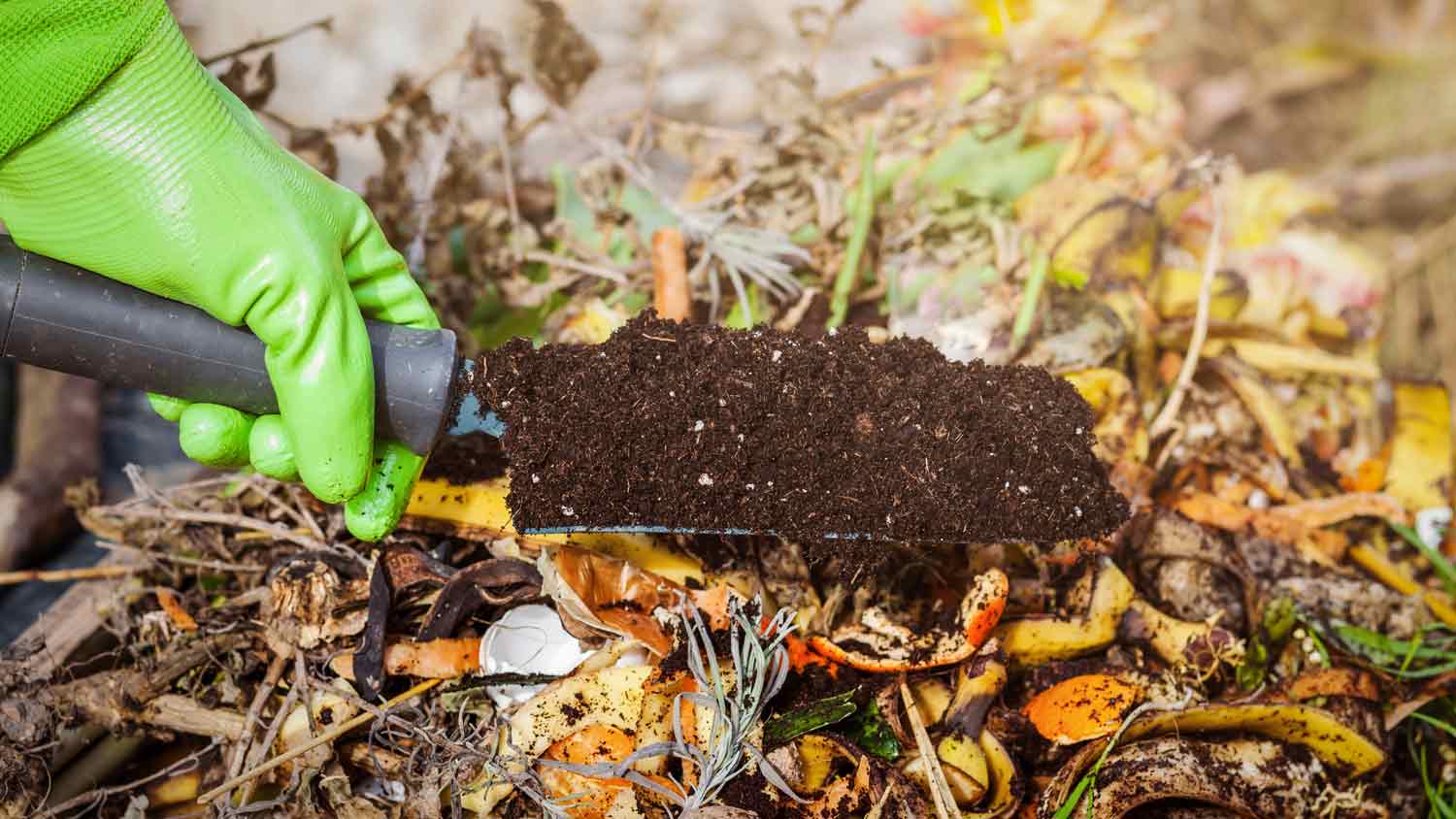
There may be nothing more healthy and nutrient-rich for your garden than compost. According to Oregon State University, it takes time to build up a good cold compost, which can include vegetable peels, fruit skins, eggshells, coffee grounds, and other organic materials from your home and garden refuse. But the wait is worth it. Some people find the smell of compost unappealing, but its organic matter, giving it that pungent aroma and making it oh-so-good for your garden.
| Pros of Cold Compost | Cons of Cold Compost |
|---|---|
| Organic mulch | Attract pests |
| Budget-friendly | Can be heavy and not easy to use |
| Attracts pollinators | Creates more heat when it decomposes |
| Helps retain moisture | Homemade compost can take time to make |
| Improves soil quality | Doesn’t smell pleasant when it’s decomposing |
| Lets you recycle your food scraps | Not the most effective option for suppressing weed growth |
| Provides insulation for your plant’s roots | Decomposes quickly so needs to be replaced at least once a year |
| Minimizes the damage from erosion | Can be harmful to plants if it has high levels of nitrogen |
Best for: Compost shines in areas that get little to moderate rain when you need to improve your soil quality, and you can create tons of compost for your garden.
Cardboard can be an effective way to suppress weed growth (and get rid of those spare boxes you have). Like with newspapers, opt for cardboard boxes with only black ink or none at all to prevent chemicals from leaching into the soil. Also, avoid boxes with waxy coatings since those can take time to decompose and hinder water from reaching your soil.
| Pros of Cardboard | Cons of Cardboard |
|---|---|
| Inexpensive | Not aesthetically pleasing |
| Helps retain moisture | Not durable against strong winds |
| Suppresses weed growth | Prevents water and air from reaching the soil |
| Releases nutrients into the soil when it decomposes | Chemicals from the cardboard can leach into the soil |
| Not the best option if you need to improve soil quality | |
| Not recommended for your vegetable garden due to ink |
Best for: Cardboard is best for flower beds and walking rows in your garden.
Cocoa bean hulls are the discarded shells of cocoa beans that have been roasted, which separates them from the shell. One thing that makes this alternative a must is its delicious-smelling aroma. However, while it smells nice and can help improve the soil’s texture, cocoa bean mulch is toxic to dogs, according to the National Capital Poison Center, since it contains theobromine and caffeine.
| Pros of Cocoa Bean Hull | Cons of Cocoa Bean Hull |
|---|---|
| Organic mulch | Expensive |
| Retains moisture | Toxic to dogs |
| Decomposes slowly | Attracts pests if too wet |
| Improves soil quality | May develop mold in hot and humid climates |
| Smells like chocolate | |
| Aesthetically pleasing | |
| Suppresses weed growth | |
| Provides nutrients to the soil |
Best for: Cocoa bean hulls are best for homeowners without dogs, who prefer organic mulch that decomposes slowly and is easy on the eyes.
From average costs to expert advice, get all the answers you need to get your job done.

Gravel is an inexpensive paving material overall, but costs vary by type. Find out what average gravel prices will look like for your project.
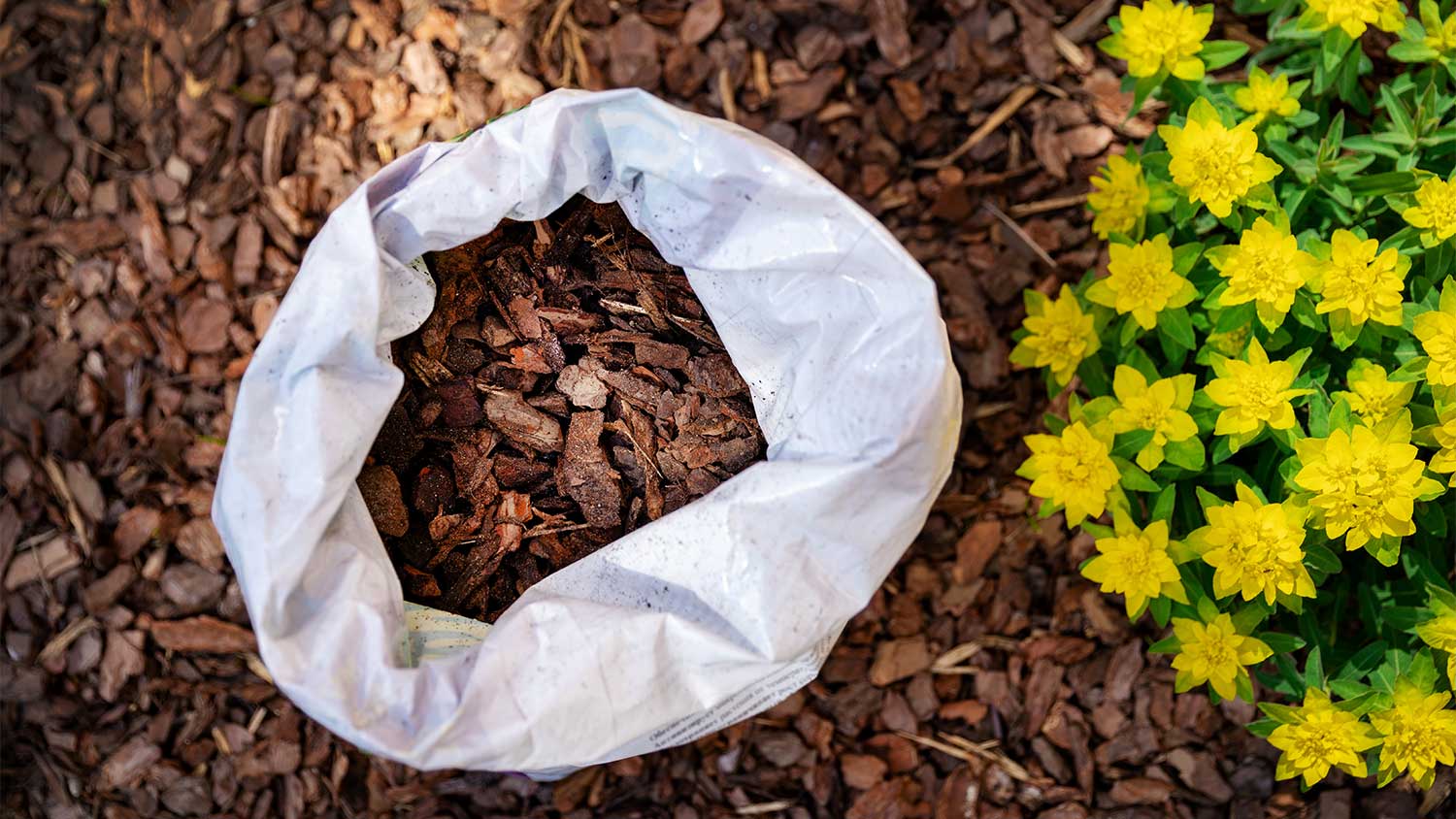
Find out the average mulch delivery and installation cost, plus key factors that impact your price. Learn how to budget, compare options, and save on your landscaping project.
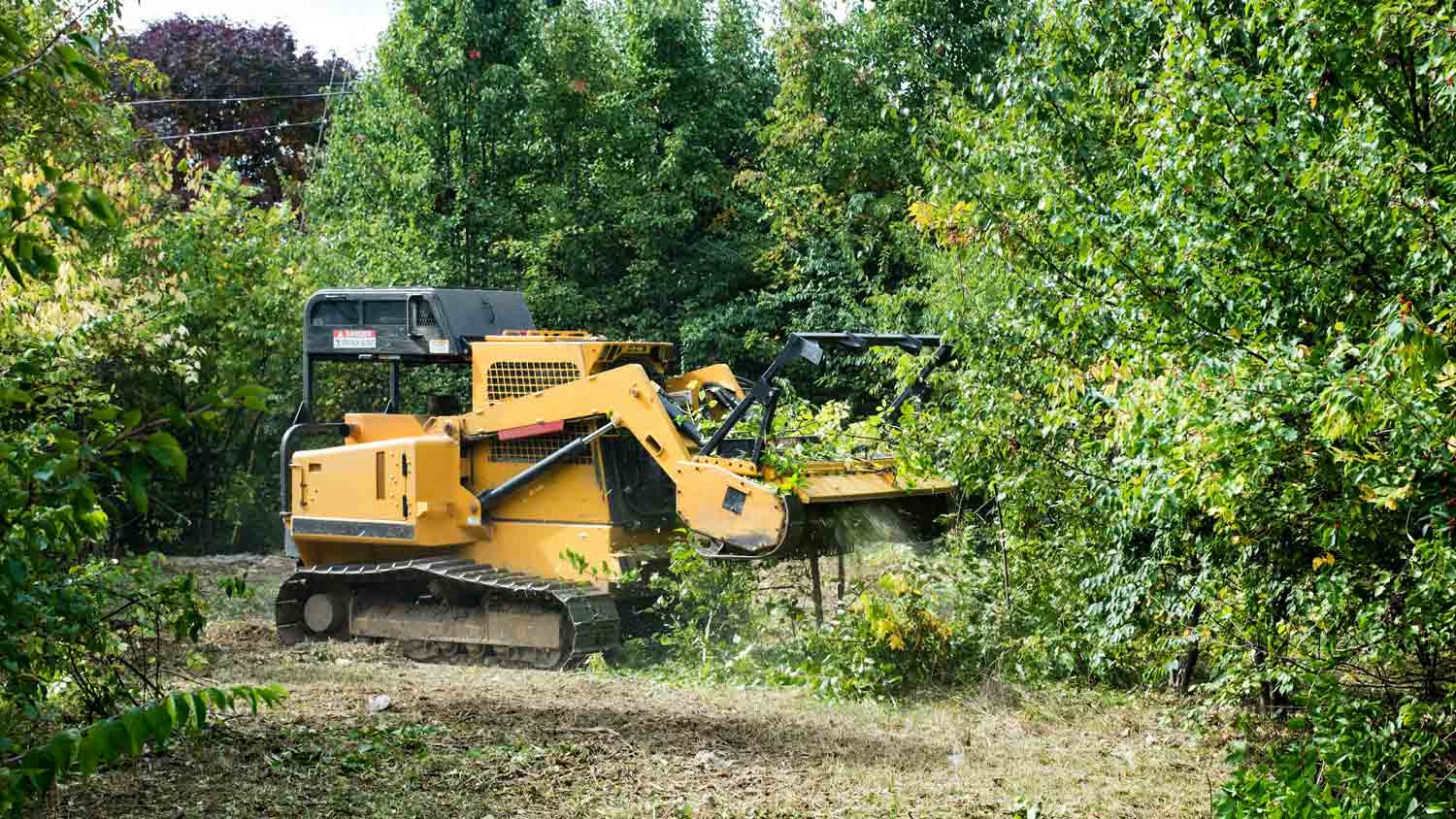
Discover the average forestry mulching cost, including per-acre and hourly rates, plus key factors that impact your total price. Get expert tips to save on your project.

Get top tips for mulching your yard to help you get healthier plants, longer flowering time, and bigger harvests, whatever you're growing.

From wood chips to grass clippings, we like to throw around the word mulch. But what is mulch, and how do you use it properly? Let's break it down.

Looking for your next mulching material and want the full scoop on rubber mulch before you commit? Learn the pros and cons of rubber mulch here.